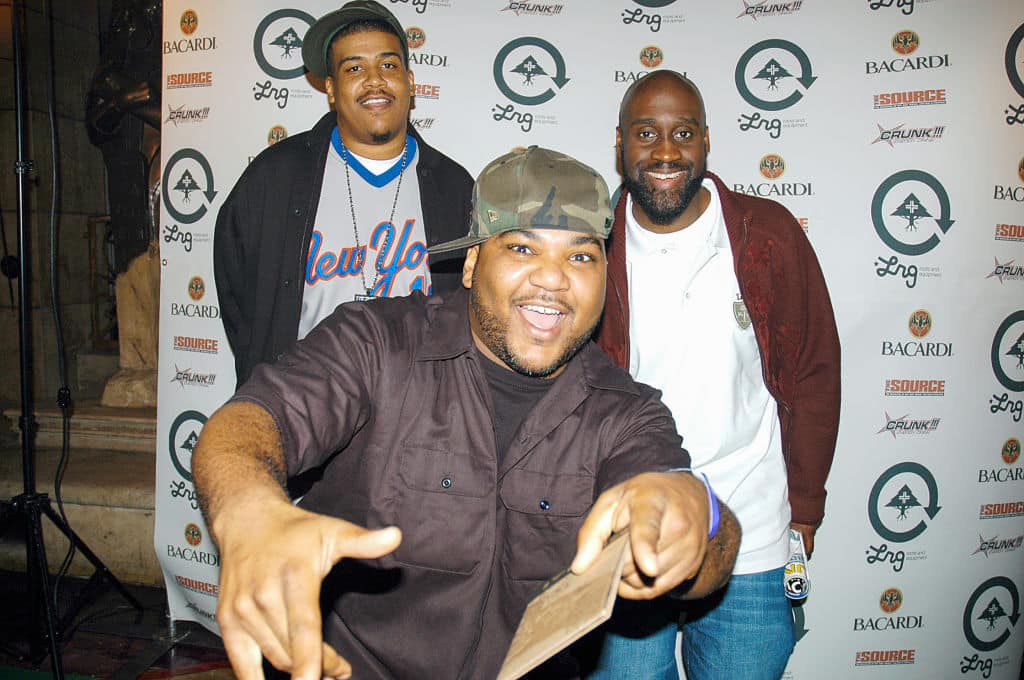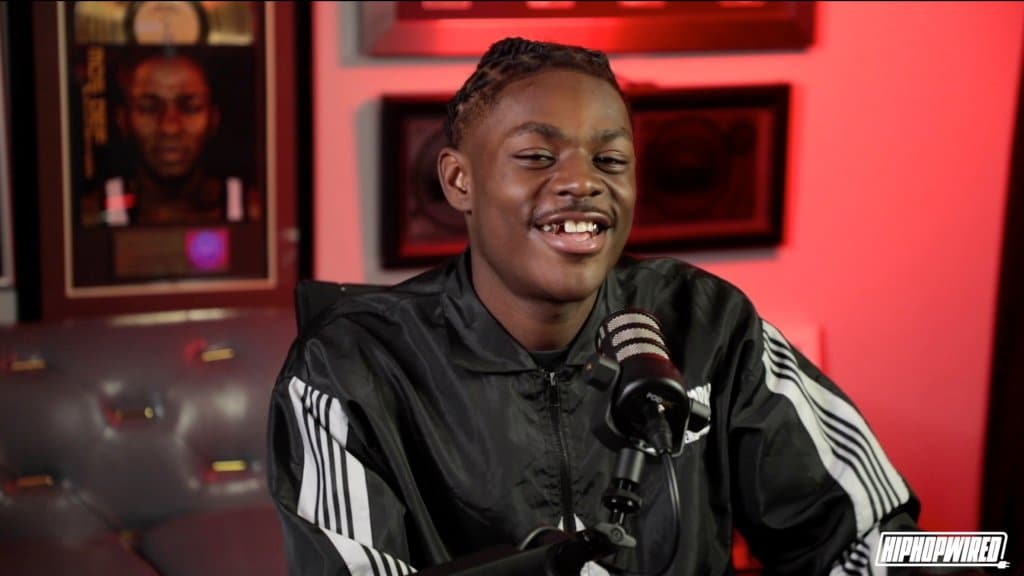Blog
Page: 19
Trending on Billboard
Global talent agency Wasserman Music has expanded its flourishing U.K. operation with a trio of new leadership hires across tour marketing, artist services, and artist representation.
The company has enlisted Paul Ryan as senior vice president and agent. Ryan is renowned in the U.K. rock and metal space, having worked across artist management and promotion for scene-leaders Bring Me the Horizon and Architects, among others.
Related
He will continue to work with those acts, alongside Cradle of Filth, Lamb of God, Malevolence and Sleep Token, as well as newly signed names TesseracT and Currents.
Rebecca Laurie joins Wasserman as a manager on the tour marketing team, overseeing domestic and global tour marketing for U.K. agents. Laurie brings over a decade of experience, having spent five years in festival and tour marketing at AEG, as well as stints with UROK and DICE.
Chris Lander has been appointed as vice president within Wasserman’s artist services team. Having held senior roles across podcast production at Global Media, he has contributed to popular U.K. shows including My Therapist Ghosted Me, LuAnna: The Podcast and Take That: This Life.
Lander has also worked in talent development, with a previous roster of leading British comedians and podcast hosts such as James Acaster, Nish Kumar and Deborah Frances-White. His new role will see him identify and execute opportunities for artists in film and television, digital media, gaming, literary, content and IP development, social impact, and more.
Back in September, meanwhile, Wasserman’s Laura Flynn was promoted to a management position on the tour marketing team. She has since worked across successful U.K. arena tour launches for RAYE, Louis Tomlinson, D-Block Europe and The Neighbourhood.
“We’re thrilled to welcome Paul, Chris, and Rebecca to our team, and to have Laura join our tour marketing division,” Alex Hardee, Wasserman Music executive vice president and managing executive, said in a statement.
“Each brings a unique skill set that strengthens our presence in the U.K. and broadens the opportunities we can deliver for our artists. Their passion, experience, and vision will be invaluable as we continue to grow.”
Source: Julia Beverly / Getty
While the culture is happy that we got a new De La Soul album, the bonus has been all the interviews to support its release. In a new Q&A, the group details what sparked their problems with 2Pac.
As per Complex, De La Soul has been on a promotional run to support the release of their newest effort Cabin In The Sky. During an interview with Ambrosia For Heads, Pos and Maseo spoke about their early days, how Dave’s spirit was with them throughout the process and more. Midway through the in-depth conversation, they were asked about their rift with 2Pac. To hear Pos tell it, the beef was a big misunderstanding.
“2Pac we had an issue with [us] because when we did the ‘Ego Trippin’ video, he unfortunately thought we were mimicking and trying to make fun of the ‘I Get Around’ video,” Posdnuos recalled. “He was very disappointed. He reached out to his manager and the people at Tommy Boy [Records] at the time and was like, ‘Yo, man, I love those dudes. I didn’t know they had an issue.’”
Pos went on to say that he personally reached out to Pac to resolve the issue, but wasn’t able to get in contact with him. Years later, De La Soul released Stakes Is High, an album that criticized the commercialization of Hip-Hop and Gangster Rap. That led to Pac directly dissing De La Soul on an unreleased song “Watch Ya Mouth,” which was during the The Don Killuminati: The 7 Day Theory album sessions.You can see De La Soul discuss 2Pac at the 42-minute mark below.
Source: @WesoToldMe / iOne
Baby Kia recently pulled up on us at Hip-Hop Wired for an exclusive interview.
The rising ATL rapper has been the face of “crash out” music for a minute. After spending time in juvenile detention in 2024, he vowed to turn things around., “My first day out moment was OD Crashin’ and nobody even knew that. I was just getting out of juvenile. I was saying so much sh*t at the time like I wasn’t gonna be hanging with this person and that person.”
From juvenile detention to selling out shows from state to state, BK started building his name during his second run at freedom. His Raleigh show even went viral after fans in the crowd broke into a full-on boxing match., “I’m trying to change my whole sh*t on some mosh pit sh*t. I told one of my supporters to bring some gloves, and they brought them. I was just on some turn up, mosh pit sh*t.”
With it being Thanksgiving, the Crash Out king tells us what he’s thankful for and how his girlfriend, Bunna B has made him change his persepticve on the holiday season:
“I’m thankful for my freedom and for my life in general. Everything I been receiving. My girl too, that was sh*t was a big blessing. Without shawty, I would be in the box right now.”
Check out the ful interview with Baby Kia on Hip-Hop Wired now.
Trending on Billboard Training season’s not over just yet. Dua Lipa stars in the latest campaign for NBCUniversal as she hypes the women of Team USA ahead of the 2026 Milan Cortina Olympic Winter Games. The British pop star struts through a winter wonderland in the snowy streets of Milan and shows off her polyglot […]
Trending on Billboard As the charts have remained dominated all November by Taylor Swift — now in her second month of pop-world eclipsing — a number of long-beloved underground stars who’ve never quite played on her commercial level have made their return. Within the space of eight days, we received new releases from Rosalía, Charli xcx, Robyn […]
Trending on Billboard
For the first time, Colombia has its own Billboard chart of the 100 most-listened-to songs. Billboard Colombia Hot 100 debuted on Oct. 29 and has been receiving weekly updates on the Billboard Colombia website and its social media platforms ever since.
Explore
See latest videos, charts and news
The new ranking is based on data collection ranging from radio airplay to streaming, sourced from Luminate — the world’s most reliable data collection service — along with support from ACR Decibeles, Colombia’s leading radio monitoring service that analyzes in real time the most listened-to music on radio, television, and digital platforms.
This week, two hits from Blessd alongside other international stars are leading the top spots: “YOGURCITO REMIX (feat. Kris R., ROA)” with Anuel AA, Yan Block, Luar La L, Kris R. and ROA, at No. 1, and “Como Oreo” featuring Fuerza Regida and Ovy On The Drums, at No. 2. Following are “Quédate” by Beéle (No. 3), “Dónde” by Kapo and Ryan Castro (No. 4), and “Ba Ba Bad Remix” by Kybba, Sean Paul, Ryan Castro, and Busy Signal (No. 5).
The Billboard Colombia Hot 100 chart marks a historic milestone by shining a global spotlight on the major contributions of Colombian icons such as Karol G, Maluma, and J Balvin, while celebrating the country’s rich musical heritage. The chart appears partially on Billboard‘s official website, where the top 25 positions can be viewed, while the full list is exclusively available on Billboard Colombia‘s site.
“In a nation celebrated for its diverse array of genres, from cumbia, salsa, and vallenato to música popular, joropo, and pop, the new chart will not only highlight the most popular hits but also provide meaningful analysis of the cultural phenomena shaping Colombia’s music industry,” the publication said in a statement. “With the Hot 100, Billboard Colombia will provide an invaluable tool for artists, producers, managers, executives, entrepreneurs, industry professionals, and fans, further strengthening the country’s vibrant music scene.”
Save StorySave this storySave StorySave this storyTogether for Palestine, the humanitarian operation that put on a massive benefit concert in September, has announced a benefit single featuring Brian Eno, Neneh Cherry, and many more. “Lullaby,” a version of the traditional Palestinian song “Yamma Mweel El Hawa,” will be released on December 12, with designs on the coveted UK Christmas No. 1 slot. Others in the ensemble include Nadine Shah, Mabel, Celeste, and Bastille’s Dan Smith. Peter Gabriel wrote an English-language lyric for the cover, and the Palestinian musician Nai Barghouti arranged and recomposed the song alongside Shards’ Kieran Brunt.Eno said in a press release, “After a year defined by unimaginable loss, grief and injustice, we want to end with an act of love for Palestine’s children. Lullaby reflects their beauty, their longing and their hope. If we rally together and download it, we have a real shot at landing Christmas No. 1—and turning that moment into vital life-saving support for Gaza’s families.”Barghouti adds, “This lullaby from our Palestinian musical heritage has been with me since early childhood. Today, it returns at a much-needed time as a reminder of what Palestinians will never lose: hope, defiance, beauty, and dignity.”Kieran Brunt co-produced “Lullaby” alongside Benji B and Henri Davies. Also featured on the track are Amena, Lana Lubany, Leigh-Anne, London Community Gospel Choir, Sura Abdo, Tyson, Yasmeen Ayyashi, and Ysee. Together for Palestine’s T4P label will release the song, via distributor Empire. All proceeds go to Choose Love’s Together for Palestine Fund, which supports the Palestinian-led organisations Taawon, Palestine Children’s Relief Fund and Palestine Medical Relief Service.In Los Angeles, meanwhile, another benefit concert, Artists for Aid, has been detailed ahead of its January 10 staging. Organized for the second year by Mustafa, the concert will feature Geese, Blood Orange, Alex G, Clairo, Faye Webster, Noname, Ravyn Lenae, Daniel Cesar, and more, with hosts Bella Hadid and Pedro Pascal.A new batch of artists has also signed up to geoblock their music from streaming in Israel. My Bloody Valentine, Saba, Shygirl, YHWH Nailgun, and Denzel Curry are among the additions to No Music for Genocide.The Together for Palestine Concert Was Gutting but Necessary
Trending on Billboard
Mumford & Sons fans, rejoice. The band will return to BST Hyde Park next summer for a huge homecoming show, a decade since their last headline performance there.
Explore
See latest videos, charts and news
The trio will headline the event on July 4, joined by their friends, the U.S. alternative rock outfit The War On Drugs. Additional acts on the bill will be revealed at a later date.
Tickets will go on sale on Dec. 4 via BST Hyde Park’s official website, while an artist presale will take place earlier in the week for those signed up to the Mumford & Sons mailing list.
“Hyde Park is woven into our story, it’s where so many memories were made. Coming back a decade later, with all this new music, feels incredibly special,” the band said in a statement. “London is and always will be the band’s home. We can’t wait.”
AEG Presents CEO Jim King added: “Mumford & Sons’ last Hyde Park show was a milestone for BST. Having them return at this moment in their career is something we’re incredibly proud of.”
Mumford & Sons graced BST Hyde Park stage, which returns to London’s Hyde Park each year, back in 2015 in support of their third record Wilder Mind. Prior to that show, they had supported Arcade Fire and played alongside The Vaccines at previous iterations of the event.
For 2026, the band are set to join a stacked BST Hyde Park line-up, which kicks off with country supernova Garth Brooks playing his first U.K. show in nearly 30 years on June 27. The summer classic will also see headline sets from Maroon 5 (July 3), Pitbull and Kesha (July 10), and Lewis Capaldi (July 11 and 12).
In the meantime, Mumford & Sons are gearing up their winter U.K. arena tour, which commences with a show in Newcastle this weekend (Nov. 29). They’ll hit up Leeds, Glasgow, Manchester, Sheffield, Birmingham and Cardiff along the way, before rounding out the leg with a double header at The O2, London (Dec. 10-11). The band are slated to release their sixth studio album Prizefighter on Feb. 13, 2026 via Island Records. The record will feature collaborations with Hozier, Gracie Abrams, Chris Stapleton and Gigi Perez, and follows their U.K. chart-topper Rushmere, released this past March.
Trending on Billboard
Franz Ferdinand and Donald Trump share almost nothing in common, apart from their Scottish heritage, and an unexpected interaction on social media.
The alternative rock outfit is currently in Australia for a national tour, kicking Wednesday, Nov. 26 at Red Hill Auditorium in Perth, Western Australia, and visiting Brisbane, Thirroul and Melbourne, before wrapping up in Sydney.
As the “Take Me Out” singers bang the drum for those dates, frontman Alex Kapronos stopped by Triple M for a chat with WA-based breakfast show hosts Robbie & Carly.
Explore
See latest videos, charts and news
Conversation, naturally, turned to the weather — where the band has come from, and the blazing heat they’ve arrived in — and the political climate.
The band penned the 2016 track “Demagogue” when Trump was still a candidate for the presidential election, which he went on to win, against most political observers’ predictions.
With “Demagogue,” Franz Ferdinand proved once more that Scots don’t mince their words.
“From the wall straight to la cuenta/Those pussy grabbing fingers won’t let go of me now,” the sing early on. And later, “From the mob to chapter eleven/Those tiny vulgar fingers on the nuclear bomb.”
When asked the band had heard from Trump’s camp, Kapronos quipped: “He’s a sensitive chap, isn’t he? When we wrote that song, he was only just going forward as a candidate. We were writing from the perspective of, ‘Oh God, imagine if…’ And here we are… we don’t need to imagine anymore.”
Kapronos “didn’t hear anything back from him personally, although years ago he replied to a tweet of mine, which was bizarre,” he reveals. Also, one of Trump’s daughters “crashed backstage at one of our shows back in 2004,” he recounts. “It was like, ‘Who’s this woman in our dressing room?’”
The band has begun their tour down under at the best possible time. “We left a very rainy, cold, dark Europe to come to a beautiful springtime Australia — and you feel that energy,” Kapronos remarks. “It lifts you up. Even if you’re hungover or jet-lagged, the energy of the crowd is transformative.”
Also, Kapranos notes, the group’s Perth show will something of a family affair. “My sister’s husband is a Perth boy, so we know quite a few folk here. I think we’ve got a guest list of 60! Perth feels like nowhere else on earth: the trees, the plants, the wildlife, it’s so unique.”
Formed in Glasgow in 2002, Franz Ferdinand has landed seven U.K. top 10 albums, including a No. 1 with 2005’s You Could Have It So Much Better, and scooped best British group and best rock act at the BRIT Award in the same year.
Their U.S. chart story includes two hits on the Billboard Hot 100, and five appearances on the Billboard 200, including two top 10s.
Stream the Triple M interview here.
Trending on Billboard
Olivia Dean spoke, Ticketmaster has taken action.
Last Friday, Nov. 21, the English artist took a moment out of her busy scheduled to lay one on Ticketmaster, Live Nation and AEG Presents for the resale ticket prices to her 2026 North American tour.
Tickets to her The Art of Loving Tour went on sale to the general public that day, and sold out in minutes. Though, with some resale prices climbing into the thousands of dollars, Dean had some harsh words.
Explore
See latest videos, charts and news
“@Ticketmaster @Livenation @AEGPresents you are providing a disgusting service,” she wrote on Instagram Stories. “The prices at which you’re allowing tickets to be re-sold is vile and completely against our wishes. Live music should be affordable and accessible and we need to find a new way of making that possible. BE BETTER.”
Ticketmaster is trying to “do better,” by capping all future ticket resale prices for the tour on its platform and refunding fans for any markup they already paid to resellers on Ticketmaster.
According to a statement from Ticketmaster, which merged with Live Nation in 2010, Ticketmaster has activated its Face Value Exchange for the tour, with immediately effect, and without transfer restrictions. That move should ensure that any future ticket sales on its site are capped at the original price paid — with no added fees, the message continues.
Refunds will be processed by Dec. 10, the company insists, though may take additional days to post, depending on individual banks.
“We share Olivia’s desire to keep live music accessible and ensure fans have the best access to affordable tickets,” comments Michael Rapino, CEO, Live Nation Entertainment. “While we can’t require other marketplaces to honor artists’ resale preferences,” Rapino adds, “we echo Olivia’s call to ‘Do Better’ and have taken steps to lead by example. We hope efforts like this help fans afford another show they’ve been considering—or discover someone new.”
The ticketing giant shared some insights into sales for the tour, for which demand was so “high,” the artist added three additional nights at the Madison Square Garden.
After reviewing all sales, reads Ticketmaster’s message, less than 20% of primary tickets were listed for resale –“showing that Olivia’s demand was driven by genuine fans who intend to go to the show rather than resellers out for profit.”
Dean had been opening for Sabrina Carpenter on the final leg of the U.S. singer’s Short n’ Sweet Tour, and announced her own North American headlining trek earlier in November.
A London native, Dean’s star has been on the rise of late, thanks in part to her Saturday Night Live debut Nov. 15, and her subsequent trip to Australia, where she performed an exclusive open-air show in Sydney and at the 2025 ARIA Awards.
That whistlestop trip down under translated immediately into a No. 1 on the ARIA Chart, as “Man I Need,” lifted 2-1 for the very first time. Dean currently has four tracks on the Billboard Hot 100, including “Man I Need” at No. 5. The 26-year-old’s The Art of Loving album is also slotted at No. 5 on the Billboard 200 dated Nov. 22.
Dean’s 2026 tour kicks off in the U.K. and Europe, beginning with Glasgow, Scotland, in April, and wraps June 20 in Dublin. Her U.S. summer trek is slated to kick off in San Francisco on July 10, and she’ll be making stops in Los Angeles, New York City, Atlanta, Toronto, Las Vegas, Boston, Houston and finish up in Austin on Aug. 28.

 State Champ Radio
State Champ Radio 








